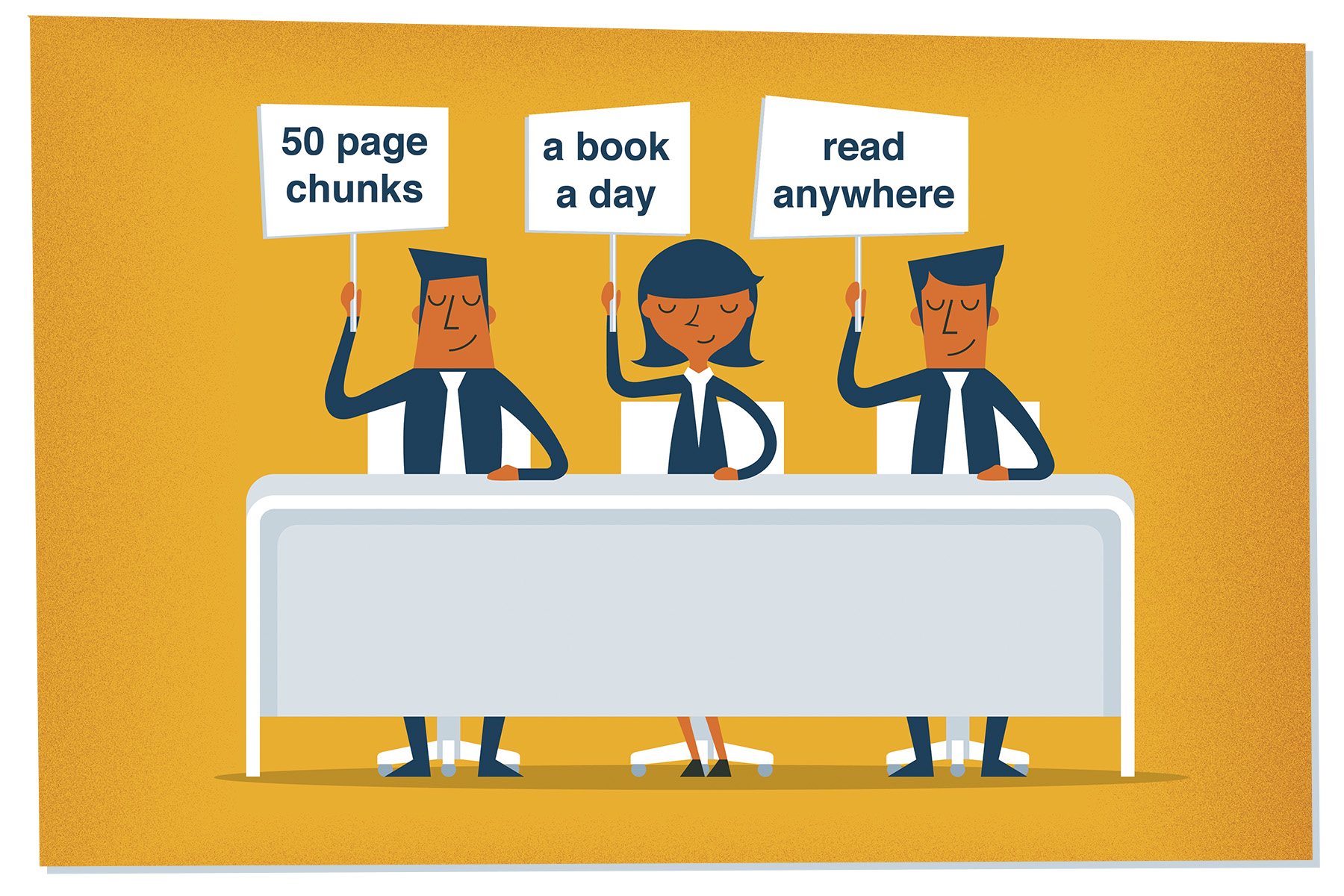
Even those who "read for pleasure" can find their to-read pile daunting. With an ever-growing onslaught of brilliant fiction, non-fiction, poetry and more being written and released, how to carve out the time to tackle what's new this year – let alone the classics?
There are some people, however, for whom racing through books is a necessity. Book prize judges are often tasked with making their way through dozens – if not hundreds – of books to make sure they know which are the best. So we asked them for their biggest tip to help you read more.
'Always read 50 pages at a time'
Viv Groskop
Women’s Prize 2020
In the past three years I’ve judged three big prizes back to back: the David Cohen Prize, the Wellcome Prize, the Women’s Prize. These all involved huge amounts of reading with different priorities. The most useful tip I can give is about having the discipline to carve reading time out of your life. Make it regular and automatic.
Anytime you’re in a queue you can read five or 10 pages (more if you download Kindle onto your phone). Before you go to sleep, read 50 pages religiously. Always have a book if you are travelling or planning to be in a waiting room.
I find it useful to always read 50 pages at a time. You can read a short-ish book in five sittings by doing that. It’s about finding half-an-hour here or 45 minutes there at regular intervals during the day rather than thinking, “I need to find an eight-hour block of time” (You will never find this block of time).
Vary the load between light and heavy and don’t be afraid to read several books at once, although it can really help to make sure their genres are completely different. Also: make someone else drive. I’ve read lots of books in the passenger seat of the car.
Viv Groskop is the author of The Anna Karenina Fix and other books
'Treat each book like blind date'
Sameer Rahim
Booker Prize 2020
It’s a book a day for five months or so. Treat each one like a conversation with someone new: a Booker blind date if you will. And just like a blind date some will go badly, some well and most you will have very little reaction to either way. It's only fair to give a novel time to absorb so I tended to read the second half of the previous day's book, and then the first half of the next – two halves instead of a whole. That also gives you an extra shot of newness halfway through the evening. No breaks, no cheating and it is just about possible.
Sameer Rahim is the author of Asghar and Zahra
'If you're struggling with a book, there's usually a reason'
Sunny Singh
Founder of the Jhalak Prize
I tend to read judiciously. That means I will be quite critical in the first go: if I get to 75 pages and it’s really not working I’ll put the book aside. It doesn’t mean I won’t read it, but it means it’s going to need a different eye. I’ll read those books that do get through to me first, then I go back and attempt a second read of those that have not gripped me. Generally there’s a reason: they may be wonderful books but they don’t stand with the same quality. The rest have kept me going.
'Read every day at the same time'
Sarah Shaffi
Orwell Prize for Political Fiction 2020
There’s no other way to read more than to just set your mind to it, but there are a few little things you can do to make that process easier. Firstly, I’ve learnt not to put off the big books. If you really want to read those 500+ page tomes on your TBR, make those the first things you tackle. If you have a physical pile, seeing how much space you gain by just reading a couple of books will spur you on.
I’d also recommend reading every day at the same time. You need a time when you can concentrate fully, when distractions are likely to be at a minimum, and when you’re not worried about the next thing you have to do. For me, that’s just before I go to sleep, for others it may be first thing in the morning or while eating lunch.
And finally, don’t be afraid to have more than one book on the go at once; you may be reading one thing at home, have an e-book to dip into during those moments where you’re waiting around (supermarket queues etc) and an audiobook for your daily walks. Variety is key, so just make you’re not reading three contemporary crime novels, say, at the same time.
'Don't be afraid to take a break'
Andrew McMillan
Polari Prize 2020, TS Eliot Prize 2020
Don’t be afraid of taking a break. When lockdown was at its height, me and my partner had a routine where one of us would get to walk the dog once a day, whilst the other did their ‘regulation outdoor exercise’, so we could have some time apart, breaks are good. When you’re faced with an overwhelming pile of reading, or when you decide you want to read more, you will reach a point of exhaustion, you will become too tired to see the words and you’ll find yourself not taking much in at all. In those circumstances it's OK to stop, take a couple of days off, and then go back to it fresher. I had a routine of trying to get through about 1.5 books a day for certain judging jobs, but that’s only possible if you give yourself some weekends where all you do is watch trash TV and eat pizza.
What did you think of this article? Let us know at editor@penguinrandomhouse.co.uk.